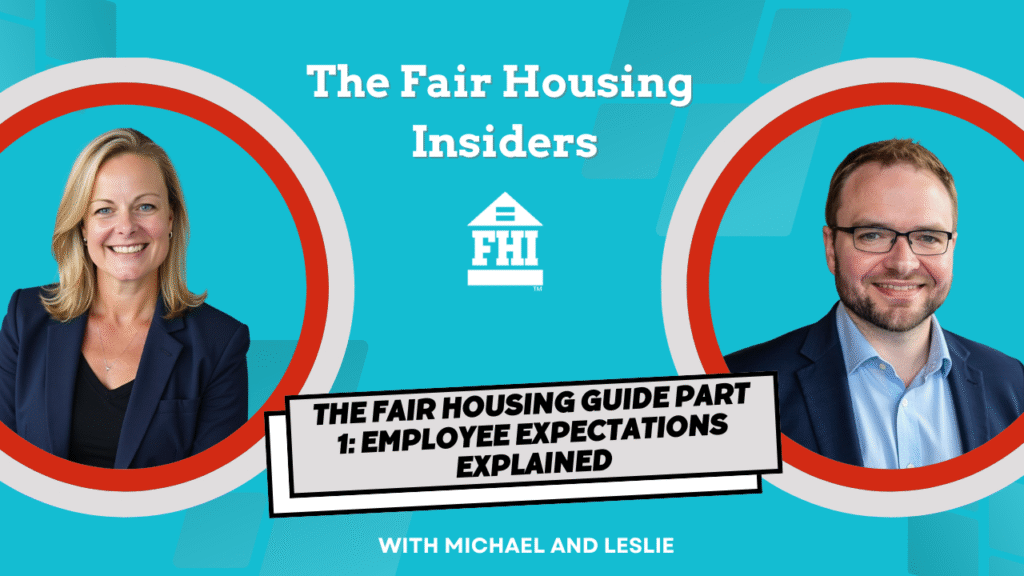Fair housing compliance is often seen as a top-down responsibility, driven by policies and leadership decisions. While that’s true, the real test of compliance happens at the ground level, through the daily actions of your employees. From leasing professionals and maintenance teams to customer service staff, every employee carries a responsibility to uphold fair housing protections.
So, what exactly should you expect from your employees when it comes to fair housing? Let’s look at three core responsibilities that every team member should understand.

Table of Contents
Ongoing Training Is Essential
Fair housing training cannot be a one-and-done event. Laws evolve, HUD guidance shifts, and enforcement priorities change. If employees only receive training during onboarding, they risk operating on outdated information years later.
Regular refresher training keeps fair housing front and center, helping employees apply current laws to everyday situations. Most violations happen not because of bad intentions, but because someone didn’t know better. Consistent training, especially scenario-based, helps prevent mistakes in tricky areas like assistance animals, criminal background screening, and marketing language.
Questions Should Be Encouraged
Fair housing rules are not always intuitive. What seems like “helpful” advice to an applicant, such as recommending families with children to certain areas, could be a violation. Employees need to feel comfortable stopping to ask a question before making a decision.
It’s up to management to set the tone. Asking questions should never be seen as a weakness but as a sign of professionalism. A quick clarification can save an employee and the company from the consequences of a costly misstep.
Reporting Matters
If an employee sees or hears something that could be a fair housing concern, even if they weren’t directly involved, they have a duty to report it. Silence can be interpreted as complicity, which may expose the company to liability.
By reporting potential issues right away, employees give leadership the chance to act before the situation escalates. Whether it’s inappropriate language from a resident or questionable conduct from a contractor, documentation and escalation protect everyone.
Setting the Foundation for Success
Leadership sets the policies, but employees carry them into practice. Reinforcing these three expectations, ongoing training, asking questions, and reporting concerns, creates a culture of accountability and compliance across the board.
Fair housing is more than just a legal requirement. It’s a shared responsibility that ensures residents are treated fairly, protects your property, and strengthens your company’s reputation. Setting clear expectations for employees is the first step toward long-term compliance and success.
You may also like:
- Retaliation vs. Rule Enforcement: Navigating the Fair Housing Fine Line
- Top 3 Fair Housing Risks for Property Managers in 2026
- A Year of Upheaval: How 2025 Impacted Fair Housing Operations
- When Should You Involve a Fair Housing Attorney?
- Holiday Guests, Assistance Animals, and Fair Housing—Are You Ready?
